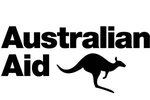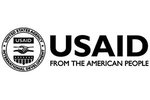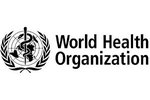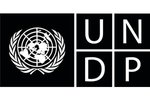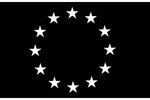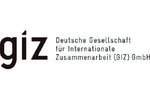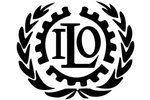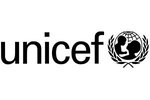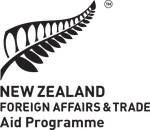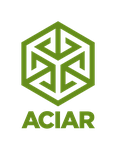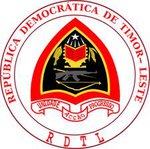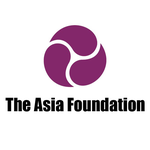Catalpa News | October 2023
Stay up to date with Catalpa's quarterly newsletter
A missed opportunity: DFAT’s new policy fails to prioritise digital development
The recently released International Development Policy states that Australia is committed to supporting the development of "effective, accountable states that drive their own development" and enhance “resilience to external pressures and shocks”.
However, how DFAT intends to achieve these ambitious goals isn’t entirely clear. This lack of clarity may be a result of failing to highlight the single aspect of the modern world that has revolutionised how we communicate, work, learn, and access services.
Strategic, systematic, interoperable and secure digital systems and tools have been the greatest driver for change in every sector in Australia over the past 30 years. More recently, their importance was demonstrated through the rapid uptake and evolution of digital systems and processes during the COVID 19 pandemic… Read the blog
More than US$2million distributed to young families in Timor-Leste
The rollout of the Bolsa da Mae Jerasaun Foun program continues across seven Timor-Leste municipalities, with more than US$2million now distributed to 40,000+ registered families with young children.
The program is a good example of holistic digital transformation of an inconsistent manual, paper-based social protection system. As well as the development and implementation of a trackable, secure digital social protection system and payment platform, the program is delivering capacity development at all levels and roles including registration officers and ministry staff.
An iterative and staged process enabled registrations to begin quickly (within 6 months of project commencement) in the three municipalities with the highest combined rates of poverty and childhood malnutrition. From here the systems were improved based on real, timely feedback from the field before expanding the program to four additional municipalities. By late 2025 the program will be available nationally.
🤝 Thanks to our partners MSSI and PHD. Supported by the Australian Government. #AustralianAid
Competency and capacity strengthening focus as Bilum program expands
The official launch of the Bilum Platform saw our GoPNG partners from the Department of Implementation and Rural Development (DIRD) publicly unveil the platform designed to monitor PNG's Service Improvement Program and manage reporting against an estimated expenditure of A$650 million per year.

It (the Bilum platform) critically addresses development challenges at the provincial and district levels and more importantly at the rural level through accountable fund management and data driven information that supports development.

Following the launch the Bilum team are supporting DIRD in a series of sub-national outreach sessions across PNG to inform continued roll-out of the system. The first of these sessions was in the newly created Wau Waria district in the Morobe province This presents an exciting opportunity to see the platform operate without the complexities of legacy issues and has strong support from the district MP, Marsh Narewec.
Moving forward, the team will focus on competencies and capacity development alongside the ongoing development of the system and regional extension of the platform. We are working closely with DIRD teams to design and integrate regular capacity building and skills development workshops to support the expansion of the program to eventually reach all 118 electorates of the country.
Bilum is an Australian aid initiative implemented by Catalpa International on behalf of the Australian Government.
New Peer and Model Teachers for the Pacific eLearning Program
A new teacher-led approach is being trialled to assist teachers to get the most out of the Pacific eLearning Program, a blended learning program offering culturally-relevant science resources and continuous professional development.
As the name suggests, Peer Teachers work with their fellow teachers as mentors and coaches. They provide support, guidance, and expertise to help their colleagues improve their teaching practices in the science classroom through discussions and sensemaking in community of practice sessions
Model Teachers demonstrate exemplary teaching practices. Periodically, they will open up their classrooms to demonstrate examples of effective teaching methods, strategies, and innovative techniques. Depending on location and practicality, teachers can participate in these sessions virtually or in person.
Following the positive engagement with these new roles in Samoa, Solomon Islands and Vanuatu are also implementing Peer and Model Teachers to support the growth of the Pacific eLearning Program.
Thanks to our partners Nanogirl Labs, Te Pūkenga (formerly Wintec), and MFAT.
Timor-Leste village development platform nears deployment
Guided by clear design principles, we’ve partnered with the National Program for Village Development (PNDS) and PARTISIPA program to creatively solve the challenges facing management and tracking of village development across Timor-Leste.
Together, we utilised human-centred design activities to keep the user in focus, and co-design methodologies to promote collaboration and diversity of thought throughout the creation of a fit-for-purpose platform that increases collaboration and coordination.
Following a series of releases and iterations, we are now close to the deployment of the new platform which will assist the National Program for Village Development (PNDS) in their mandate to improve socio-economic conditions and local governance for village men and women in Timor Leste through community managed infrastructure projects.
The platform includes offline capable mobile-first data collection, meaningful data visualisation and analysis, a project manager, and Suku (village) Manager which captures a wide range of individual Suku information and data including Suku profile information, priorities, activities, budget, suppliers, complaints and committee members.
Following deployment, a group of ‘Trainer of Trainers’ will learn how to use the new platform and a transition plan will support the PNDS program to rollout the new platform nationwide.
Thanks to our partners Timor Leste Ministry of State Administration (MAE) and the Ministry of Finance (MoF), Timor-Leste’s Village Development Program (PNDS), and PARTISIPA, supported by Australian Aid.
Designing digitally-enabled education programs that scale
Digitally-enabled education initiatives hold huge potential for increasing accessibility to learning and skills training, especially for those in remote and marginalised communities. They can increase engagement, personalisation, collaboration, and cost efficiency in education service delivery.
While some programs have clear plans to be expanded regionally, nationally or globally, often the commitment, funding or opportunity to scale is determined after implementation or a pilot phase. Sometimes, decisions to scale occur well after critical foundational decisions around design and implementation have been made.
In order to future-proof, avoid rework and really reap the benefits of elearning efforts, sustainability and scalability must be co-designed by partners and funders and embedded throughout program planning, design and implementation. Read the blog.
Thanks for reading! To receive our quarterly newsletter simply sign up on the form below. You might also like to check out our current job vacancies.
